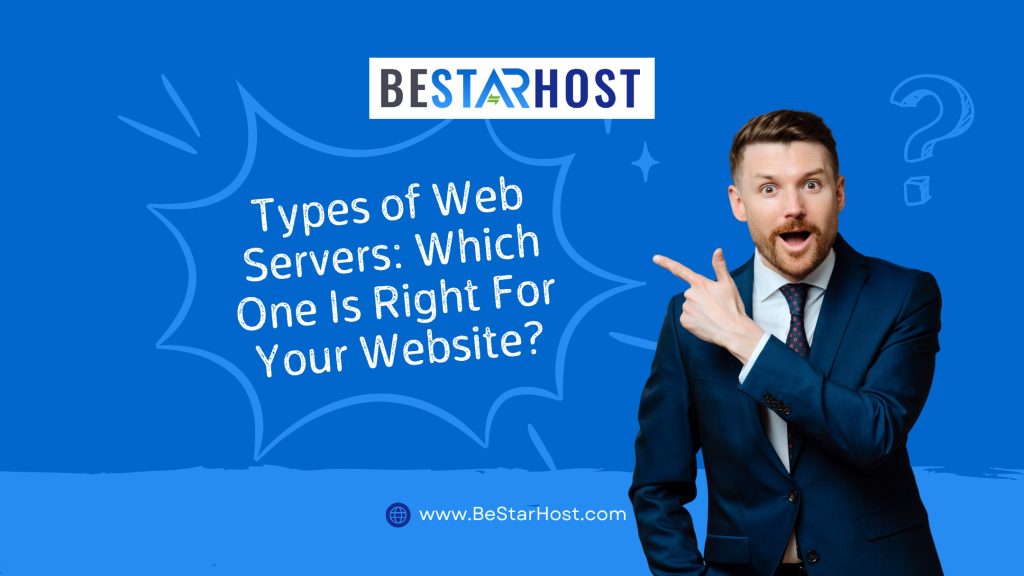 When building or hosting a website, choosing the right web server is just as important as selecting your domain name or content management system. The right server impacts your website’s speed, scalability, and reliability.In this guide, we’ll explore the major types of web servers, compare their features, and help you determine which web server you should use based on your site’s needs.
When building or hosting a website, choosing the right web server is just as important as selecting your domain name or content management system. The right server impacts your website’s speed, scalability, and reliability.In this guide, we’ll explore the major types of web servers, compare their features, and help you determine which web server you should use based on your site’s needs.
What Is a Web Server?
A web server is software that receives requests from clients (like browsers) and responds with web content such as HTML pages, images, and scripts. It plays a key role in delivering your site’s content quickly and efficiently.
Common Types of Web Servers
Let’s take a closer look at the most widely used web servers today:
1. Apache HTTP Server
Apache, developed by the Apache Software Foundation, is one of the oldest and most popular web servers in the world. It powers millions of websites and supports both static and dynamic content.
- Highly customizable with .htaccess files
- Large community and extensive documentation
- Compatible with Linux, Windows, and macOS
Best for: Websites needing flexibility and wide support for modules.
2. NGINX
NGINX is a lightweight, high-performance server known for its speed and ability to handle many simultaneous connections. It’s a popular choice for content-heavy or high-traffic websites.
- Efficient at serving static content
- Acts as a reverse proxy or load balancer
- Low memory consumption
Best for: Modern applications and websites that require speed and scalability.
3. Microsoft IIS (Internet Information Services)
IIS is Microsoft’s proprietary web server designed to work seamlessly with Windows Server environments.
- Deep integration with ASP.NET and Windows features
- Easy GUI-based configuration
- Supports HTTP/2 and SSL/TLS
Best for: Enterprises or businesses using Microsoft technologies.
4. LiteSpeed Web Server
LiteSpeed is a commercial web server known for performance, security, and Apache compatibility. It can handle high traffic with fewer resources.
- Faster PHP processing than Apache
- Built-in DDoS protection
- Great with cPanel hosting
Best for: WordPress and eCommerce sites looking for speed boosts.
Apache vs NGINX vs IIS: Web Server Comparison
| Feature | Apache | NGINX | IIS |
|---|---|---|---|
| Performance | Good | Excellent | Good |
| Ease of Use | Moderate | Moderate | Easy (GUI) |
| Static Content | Good | Excellent | Good |
| Dynamic Content | Excellent | Good | Excellent |
| Platform | Cross-platform | Cross-platform | Windows only |
| Licensing | Open-source | Open-source | Proprietary |
This web server comparison shows that the best choice depends on your website’s specific needs, tech stack, and expected traffic.
Which Web Server Should I Use?
This is one of the most common questions developers and site owners ask: Which web server should I use? The answer depends on several factors:
- Apache – Great if you want flexibility, .htaccess support, and are using PHP-based apps like WordPress.
- NGINX – Best for speed and handling thousands of simultaneous users efficiently.
- IIS – Ideal for enterprises that rely heavily on Windows-based infrastructure.
- LiteSpeed – Best web server for website performance in shared or managed hosting environments.
Still unsure? Check out our guide to hosting upgrade options or talk to a BeStarHost expert for tailored advice.
Choosing the Best Web Server for Your Website
When choosing the best web server for your website, consider the following:
- Type of content – Static sites load faster on NGINX or LiteSpeed.
- Scalability – NGINX and LiteSpeed scale better under high loads.
- Development stack – IIS for .NET, Apache for PHP, NGINX for JAMstack sites.
- Support and updates – Open-source projects have active communities, while commercial servers offer premium support.
Your choice of web server is a foundational decision that affects website speed, uptime, SEO, and user experience. Make sure your hosting provider supports the server that best matches your technical goals.
Final Thoughts
There’s no one-size-fits-all answer when it comes to web servers. Whether you prioritize speed, compatibility, or ease of management, understanding the different types of web servers will help you make an informed decision.
At BeStarHost, we offer hosting solutions optimized for Apache, NGINX, and LiteSpeed — so you get the freedom to choose the server environment that fits your needs best.
Want to upgrade your performance with the right server? Get in touch with our team or browse our web hosting plans to get started.
